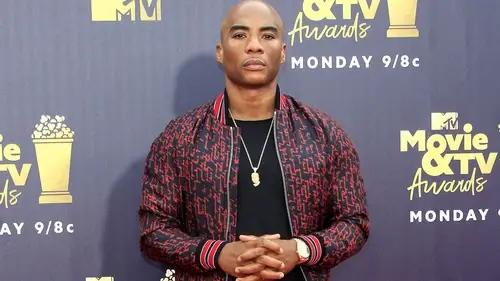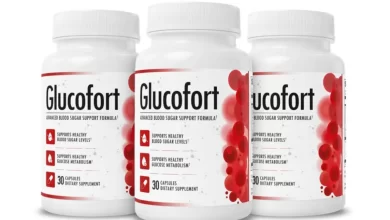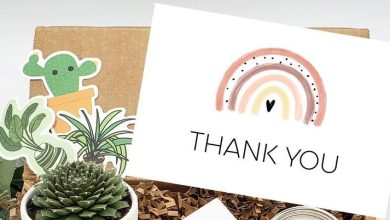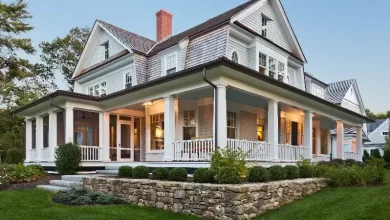Charlamagne Tha God: A Voice For Therapy and Self-care

The first step to changing the world is changing one’s inner world. Multi-media personality Lenard McKelvey aka Charlamagne Tha God has adopted this principle wholeheartedly ever since he became aware of his rocky relationship with mental health.
The award-winning radio show host, NY Times best-selling author, and co-host and executive producer of Comedy Central show, “Hell of a Week with Charlamagne Tha God,” has come a long way from avoiding jail time as a teenager living in Moncks Corner, South Carolina.
Ever since the release of his book, Shook One: Anxiety Playing Tricks On Me, Charlamagne’s life seems to have adopted a new purpose. The best-selling book chronicles his journey of self-reflection and healing through therapy. A masterful account of story-telling, it also reveals how the media maverick addressed his anxiety and depression while providing a blueprint for those looking to begin their healing journeys.
For years, while growing up, Charlamagne regularly dealt with anxiety and panic attacks.
“I was back home living with my mom in Moncks Corner, South Carolina, I had just gotten fired for the fourth time from radio, my daughter was two-years-old, my now-wife was living back home with her parents and I just started collecting unemployment checks,” he told Forbes in an interview.
“I’m driving down I-26 in South Carolina and I felt that feeling I felt so many times in my life before: Chest getting tight, breathing getting short but heavy, clutching my chest like I’m about to have a heart attack – again. I went to the doctor the next day and the doctor told me what all doctors told me when I checked myself into the emergency room for that same feeling throughout my life: ‘You’ve got an athlete’s heart. You’re fine.’”
However, this time there was a subtle difference. The medic on call enquired whether he suffered from anxiety and Charlamagne, perplexed by this new term, slowly began to uncover the reason behind his regular visits to the hospital. While Charlamagne pinned his anxiety down to the stressors of making a living – he was soon to face a rude awakening.
Then the aspiring radio show host landed a gig at “The Breakfast Club” on FM Power 105.1. The morning show, which went on to enter the Radio Hall of Fame, catapulted Charlamagne to the very pinnacle of success. While the world was being introduced to his rising stardom, Charlamagne’s mental health slowly deteriorated.
“Even when I first got diagnosed with anxiety, I didn’t know what to do with it,” the star of Tha God’s Honest Truth said. “As you get older and you start doing the work on yourself, and you start peeling back the layers of your life and realizing, like all of these different things that you grew up on, it’s like, yeah, it was right there, under your nose the whole time … I’m taking people on that journey with me.”
It wasn’t until Charlamagne was introduced to therapy, partly due to the advice of Pete Davidson, that he began assembling the tools for his healing journey. Outspoken as ever, the media guru began discussing his experience more openly, especially after the release of his book, Shook One.
“You can’t heal what you don’t reveal,” he says. “I would be very disingenuous if I had conversations with individuals about things that they were going through, and I wasn’t expressing things that I went through.”
While therapy has now become an integral part of Charlamagne’s wellness regime, the celebrity also incorporates other accessible practices into his daily routine. Ever since the pandemic began, Charlamagne has found a deep sense of calm and peace through the practice of meditation.
“I could never quiet my brain enough to actually get into meditation, but I got into it at the end of 2020…I think with the pandemic, just being at home, and being forced to be still, helped a lot of us to understand what quiet time really looks like and what peace really looks like.”
Self-care also plays an important role in Charlamagne’s wellness. He enjoys regular visits to the barber for a haircut and a massage, while also ensuring that he takes regular breaks from social media.
Another important pillar of Charlamagne’s self-care regime is reconnecting with nature. In a lifestyle that espouses technology, high-rise living, and a disconnect from nature, the self-made guru strongly believes in the practice of grounding.
“I love grounding. I love when it’s summertime and I can take my shoes off and go walk barefoot in my yard. As crazy as it sounds…I am, literally, outside, hugging a tree, putting my forehead to it, sitting down next to it, laying on my back against it, putting my head against it, all of that. It makes me feel better and it gets me back to a good place.”
While Charlemagne regularly advocates for the adoption of self-care and therapy, he is hell-bent on breaking the cycle of intergenerational trauma. Aware of the difficulties of diagnosing mental illnesses and finding the right tools to deal with them, he often brings up the story of how his father quietly struggled with his mental health for decades before finally opening up.
“My father was going to a therapist two or three times a week. He was dealing with depression back in the day and wanted to kill himself; he was on 10-12 medications; he was getting a check for mental disability [and] who knew? He never told [anybody].”
To ensure that Black communities have access to the latest mental health tools and information, Charlamagne set up the Mental Wealth Alliance (MWA) in 2021. The organization is a “forward-thinking foundation created to destigmatize, accelerate, and center state-of-the-art mental health outreach and care across the U.S. while building an unprecedented long-term system of generational support for Black communities.”
The MWA espouses the very nature of Charlamagne’s life goals – to enact social change through healing intergenerational trauma.




